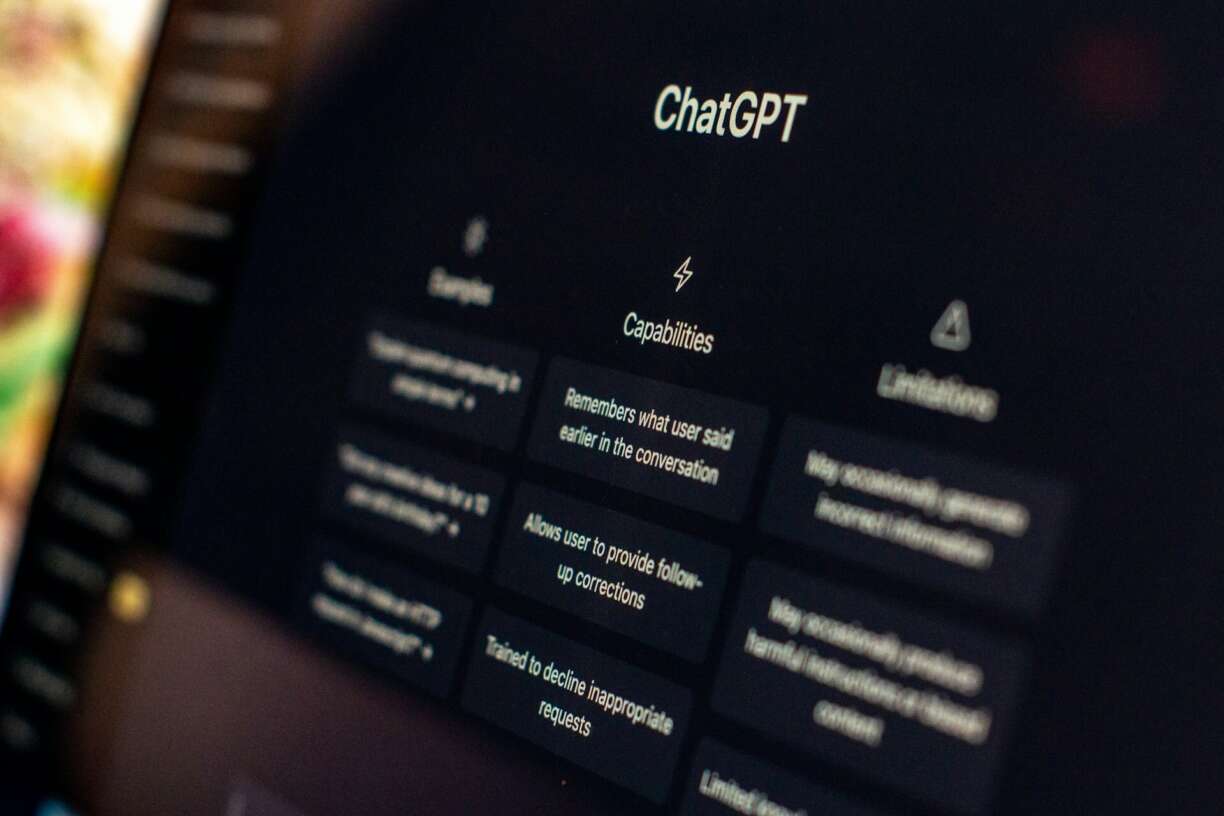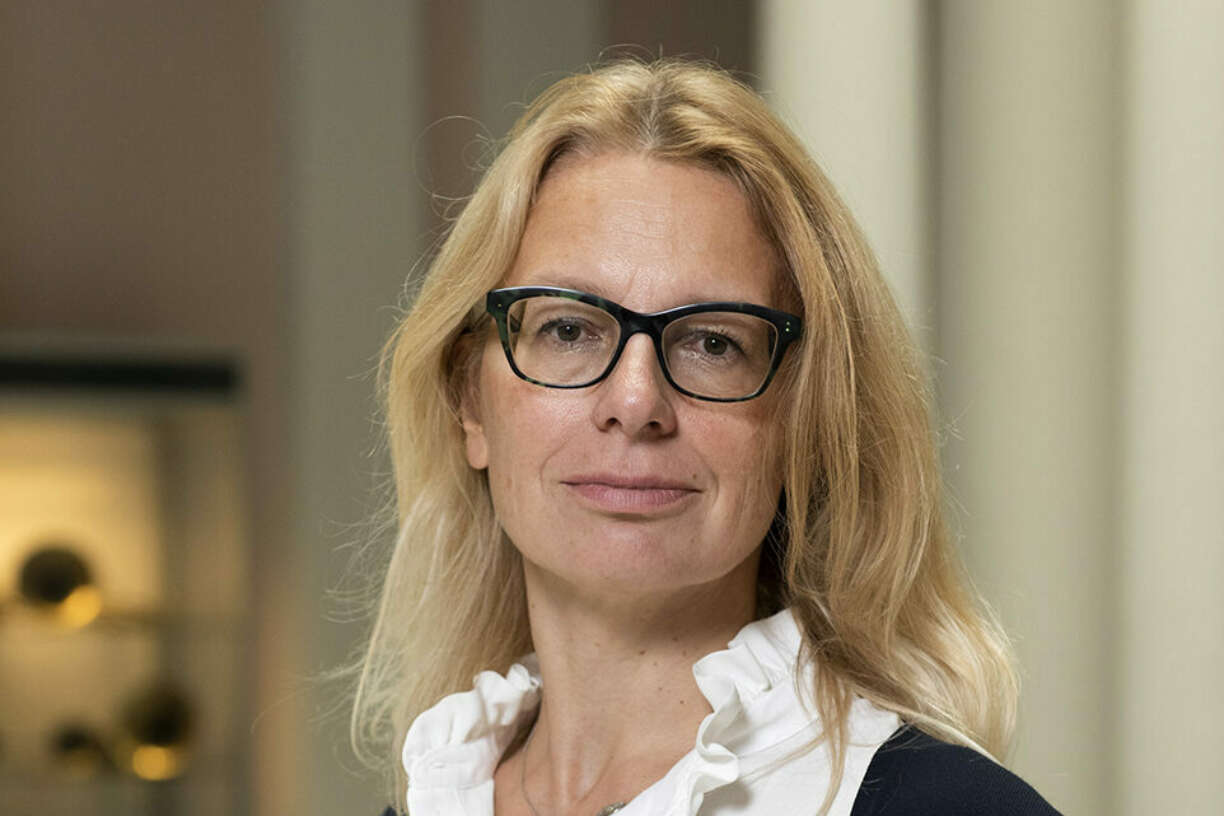April 20, 2023
What kind of algorithmic society do we want to strive for and live in? Interview with AlgoSoc directors Natali Helberger and Claes de Vreese (part II)

Algorithmic decision-systems are increasingly central to our lives. In some situations they even replace human decision-making. Renowned scientists from the universities of Amsterdam, Rotterdam, Utrecht, Delft and Tilburg have joined forces in a long-term research program which investigate how society can ensure that these (semi-)automated decision systems are designed to respect public values and human rights.
“AlgoSoc will play a crucial role in developing new methods for assessing and anticipating the impact of emerging technologies, and in informing technology regulation” — Prof. dr. Natali Helberger
The research programme Public Values in the Algorithmic Society (AlgoSoc) is directed by Natali Helberger, who is University Professor in Law and Digital Technology with a special emphasis on artificial intelligence at the University of Amsterdam (UvA). Together with co-director and UvA-colleague Claes de Vreese, University Professor of Artificial Intelligence and Society, she is member of a team of six principle investigators who are jointly responsible for making AlgoSoc result into an integrated vision on the relation between society and advanced algorithms and artificial intelligence.
We interviewed Natali Helberger (NH) and Claes de Vreese (CdV) to gain insight into AlgoSoc and its connections to current technological and regulatory developments.
At EU level, there are currently a lot of new developments with regards to AI regulation. Are you accommodating these into AlgoSoc?
NH: "These developments really hold great significance as Brussels is currently the epicenter of rulemaking for the algorithmic society. European law making has therefore a very central role in our program. AlgoSoc has a critical objective of providing insights that can contribute to better lawmaking. Our goal is not limited to producing academic research, but also translating it into practical solutions. We seek to understand public values and how they evolve, including new values and rights of citizens, and to determine what safeguards are necessary to realize them. It's important to highlight that we have a unique opportunity to research the evolving regulatory framework that's emerging from Brussels and how it's impacting the implementation of automated decision-making. Our ten-year program presents a great opportunity for in-action research about the effectiveness of regulation and its impact. We can collect and share these insights with regulators to facilitate better decision-making.”
CdV: "Indeed, running a research program like AlgoSoc is particularly fascinating at this moment in time. The regulations are being made in real-time as we conduct our research, and they will be implemented and adapted over time. The EU regulations are often framework regulations, leaving member states to determine how to apply them, and we'll soon witness the first cases. This presents a unique opportunity to observe a continent as a laboratory and to collect data that can inform the research program and the regulatory process. Europe is leading the global policy and regulation discussions on this topic, which is encouraging as it could lead to the implementation of safeguards based on values and guardrails. However, Europe's position as a first-mover means that it could also make wrong decisions or overregulate. All of these dynamics are unfolding during the ten years that the AlgoSoc research program is taking place. Although this is a challenging period with many moving parts, it's undoubtedly the best time to conduct research in this field."
NH: “The AlgoSoc program can also benefit significantly from the existing networks that the principle investigators have established with regulators in the Netherlands and across Europe. It's crucial to emphasize that we're building on these relationships. Therefore, not only the timing is ideal, but the consortium is also well-positioned to conduct this research.”
CdV: “Indeed, Natali Helberger is closely involved in the Council of Europe initiatives on this subject. Other members of the consortium have advised the European Commission, while co-PI Prof Corien Prins, in her role as Chair of the Netherlands Scientific Council for Government Policy (WRR), was involved in producing the most comprehensive overview up to date of how AI impacts a country like the Netherlands. This WRR report, published just last year, provides a thorough analysis of the systemic nature of AI and its impact on every layer of society.”
“Running a research program like AlgoSoc is particularly fascinating at this moment in time: regulations are being made in real-time as we conduct our research” — Prof. dr. Claes de Vreese
Are similar regulatory initiatives designed outside of the EU too?
NH: “I think the EU is an incredibly fascinating region for studying governance, technology, and regulation, and I strongly believe that it is currently one of the most dynamic areas in the world in this regard. The EU's recent endeavor to establish a regulatory framework promoting human-centric AI and safeguarding fundamental rights and critical values makes it a particularly intriguing location for our research. The EU's efforts have also garnered significant attention from experts worldwide, who are closely monitoring the development and implementation of its regulatory framework. Overall, the EU's efforts in governance, technology, and regulation position it as a prime area of study and observation for academics and practitioners alike.”
CdV: “I agree that Europe is leading the debate on public values, governance, technology, and regulation. However, it's essential to recognize that this debate presents unique challenges, even within the EU. Variations in the quality of democracy and the rule of law among member states can make it difficult to reach a consensus on the values that should underpin a European regulatory AI framework. Furthermore, when viewed globally, cultural and regime differences further complicate this discussion. Nonetheless, what is happening in Europe can have a profound impact on discussions worldwide, and the ongoing conversation in Europe is ahead of what is taking place in other regions. It's critical to approach the development of regulatory frameworks with caution when exporting them to other regions. Still, this discussion is vital to establish a regulatory framework that safeguards fundamental rights and values. Our AlgoSoc research program is in a unique position to contribute to this significant debate, and we should seize this opportunity.”
“The EU's recent endeavor to establish a regulatory framework promoting human-centric AI and safeguarding fundamental rights and critical values makes it a particularly intriguing location for our research” — Prof. dr. Natali Helberger
What would be the outcome if there were conflicting regulations between the EU and the US?
NH: “Currently, EU regulation requires that any company offering services to Europeans that are used within Europe must comply with the European regulatory framework. This effectively means that US companies that want to provide services in EU member states must ensure that their services are compliant with EU rules. We also observe something like a “Brussels effect”, which means that this compliance trickles down into services offered elsewhere. On top of that, US lawmakers also engage in a lively exchange with EU lawmakers, allowing for mutual learning experiences and regulatory adjustments overseas.”
So, the EU market is significant enough to compel larger US platform companies to modify their products to comply with EU regulatory frameworks?
CdV: “So far it is. It's worth noting that no single EU member state would be able to exert such influence on larger US platform companies. It's only through the collective efforts of the 27 member states that European countries have a voice in these matters. The General Data Protection Regulation (GDPR) is an excellent example of this collective action, as companies had to adapt their products and services to comply with the GDPR for the European market. It's worth discussing whether this approach is the best way to enforce compliance, but it's undoubtedly a highly effective method.”
NH: “We also see US lawmakers now discussing similar regulations to those in the EU. For instance, EU privacy standards are becoming more prevalent in the US, and there is a growing demand for the regulation of social media platforms. This suggests that European standards have an impact beyond Europe's borders. As CdV stated, this could be viewed as either positive or negative, but it's undoubtedly a trend worth considering.”
Is stricter EU regulation not at odds with innovation and competition?
NH: “I think it's important to realize that law and regulation often get portrayed as obstacles to innovation, but they actually have a vital role in promoting, enabling, and protecting innovation. Intellectual property protection, standardization, and fair competition rules all create an environment conducive to creativity, innovation, and investment. So, law has a critical role in stimulating innovation. Although some may view the law as hindering innovation, it's essential to recognize that it takes into account the perspectives of all parties affected by a particular innovation and that it is trying to strike a balance between all of their interests. This balance may necessitate making compromises that could slow down innovation in one area but are critical for realizing public values elsewhere. We see this need for regulation echoed in calls from technology companies themselves, who recognize the importance of setting standards and defining the rules of the game we want to live by. Overall, it's vital to understand that law and regulation are not obstacles to innovation but are necessary components of a thriving innovation ecosystem.”
CdV: “I 100% agree. I mean, the establishment of market boundaries and normative conditions to facilitate fair competition has always been a key component of regulatory frameworks. To be frank, we shouldn't exaggerate the potential economic consequences of carefully considering the implementation of AI in Europe. On the other hand, if we fail to do so, we may face significant human costs. These costs, both economic and societal, are likely to be far greater than the temporary delay of some economic benefits compared to an unregulated approach. Therefore, the question we should be asking is: can we afford not to think twice about AI implementation? I strongly believe the answer to this question is no.”
“AlgoSoc seeks to help organizations leverage the full potential of AI and other emerging technologies while promoting social and economic welfare for all” — Prof. dr. Claes de Vreese
NH: “Chatgpt is a beautiful example, because suddenly very powerful AI is available to everyone. As we all experiment with this technology, it raises important questions about the extent to which we should use it, and what kind of safeguards are necessary to ensure its safe deployment in society. It is crucial to consider what is right and wrong in the use of AI, and to look to regulators like the European Commission for guidance. The proposed AI Act is a step in the right direction in setting standards for the responsible use of AI in society, and will help to ensure that this technology is used ethically and in a way that benefits all.”
CdV: “And this is exactly the kind of knowledge that AlgoSoc produces. It is designed to provide valuable insights into the impact of AI and other emerging technologies across different sectors. By conducting sector-specific research projects and sharing cross-sector learnings, the program is well-positioned to inform discussions around responsible and ethical use of these technologies. While there is no doubt that AI can bring significant economic benefits, it's crucial to ensure that these benefits are shared fairly and that market entry is not unfairly restricted. Ultimately, our program seeks to help organizations leverage the full potential of AI and other emerging technologies while promoting social and economic welfare for all."
But talking about chat GPT, isn’t very difficult to know what the benefits will be? This technology is surely going to have unanticipated uses and effects; how then do you regulate it?
NH: “This is again exactly where the AlgoSoc program comes in. It will play a crucial role in developing new methods for assessing and anticipating the impact of emerging technologies, and in informing technology regulation. The field of AI is extremely dynamic and complex, and policymakers may not always have the necessary training to navigate this environment. This is where our program's interdisciplinary research becomes particularly valuable. By drawing on diverse perspectives and expertise, we can help regulators navigate this complex space with greater clarity and effectiveness.”
How has this disciplinary diversity been taken into account in the design of the program?
CdV: “It's safe to say that interdisciplinarity is central to the AlgoSoc program. It is implemented by exceptional researchers who are leaders in their respective fields, but who simultaneously recognize that the big societal questions we face cannot be solved by a single discipline, and that multiple perspectives and interdisciplinary work are essential. This approach is evident in every aspect of the program, from individual sub-projects to the overall program design. For example, each project is designed to address questions at the intersection of two disciplines, with supervisors from those respective fields. This is not to dismiss the value of disciplinary research, but rather to emphasize the importance of combining different perspectives. The program also aims to draw lessons across disciplines at a programmatic level. This approach results in a self-selected group of curious, open, and humble researchers who understand the benefits of interdisciplinary work, even when it requires them to learn along the way.”
NH: “And who are willing to share this experience with a new generation of researchers that will learn to operate in this highly interdisciplinary environment.”
Apart from working across disciplinary boundaries, do you also work across sector boundaries?
CdV: “Yes. The program has carefully considered partnerships with key stakeholders in various sectors. At the same time, it also carefully considered which of its potential stakeholders should be included as objects of study rather than active partner. While other related research projects may involve collaboration with big tech companies, AlgoSoc has made a deliberate decision not to include them as partners in the consortium, in order to maintain an arm's length relationship and ensure that they are studied objectively.”
To read the first part of this interview, follow the link.
More results /
 Je medisch dossier inladen in nieuwe functie ChatGPT? Denk 10.000 keer na
Je medisch dossier inladen in nieuwe functie ChatGPT? Denk 10.000 keer na
By Natali Helberger • January 19, 2026
By Roel Dobbe • November 24, 2025
By Roel Dobbe • November 12, 2025
 Combatting financial crime with AI at the crossroads of the revised EU AML/CFT regime and the AI Act
Combatting financial crime with AI at the crossroads of the revised EU AML/CFT regime and the AI Act
By Magdalena Brewczyńska • January 16, 2026
By Sabrina Kutscher • July 02, 2025
By Natali Helberger • March 06, 2025
By Maurits Kaptein • June 06, 2025
By Leonie Westerbeek • November 22, 2024
By Agustin Ferrari Braun • January 29, 2026
By Fabio Votta • November 05, 2025



